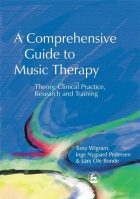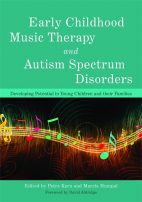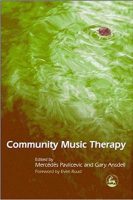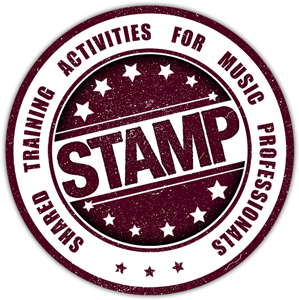Get inspired by this collection of publications to train yourself. However, we don’t claim that this list is exhaustive. They are music therapy related publications, either on their own, or whole website are suggested, that would have many publications collected already. Since our interest is younger people, we have only listed publications that relate to our subject.

The European Music Therapy Confederation

Luca Tiszai
- Music Belongs to Everyone: Moments of Progress in Community Music Therapy with Musicians with Severe Disabilities
- About my experiences of the workshops that we held with our orchestra: We are able to make music together! Workshops with musicians with severe disabilities
- The Spirit of Zoltán Kodály in Special Education: Best Practices In Hungary
- Kodály Approach in the Crossroad of Education and Therapy. Voices 2015 no. 2.
- The Community Music Therapy Model in Special Education (Hungarian study)
Music as Therapy
Please find here a collection of publications in Romanian.
A Comprehensive Guide to Music Therapy: Theory, Clinical Practice, Research and Training
by Tony Wigram, Inge Nygaard Pedersen and Lars Ole Bonde (2002)
Music therapists have a rich diversity of approaches and methods, often developed with specific relevance to meet the needs of a certain client population. This book reflects the components of such diversity, and is a comprehensive guide to accessing the ideas, theory, research results and clinical outcomes that are the foundations of this field.
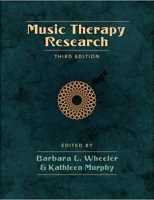
Music Therapy Research
The so-called “Bible of music therapy research”:
Barbara L. Wheeler: Music Therapy Research (1st edition: 1995)
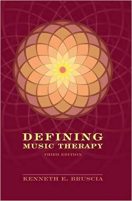
Defining Music Therapy
One of the basic books if you want to understand the definition of music therapy. The writer collects all schools of music therapy, theories and approaches. Kenneth Bruscia: Defining Music Therapy (1st edition: 1989)
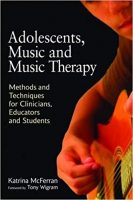
Adolescents, Music and Music Therapy
Your best know-how on how to work with teenagers as a music therapist!
Katrina McFerran: Adolescents, Music and Music Therapy: Methods and Techniques for Clinicians, Educators and Students
When guided effectively, the relationship between adolescents and music can offer powerful opportunities for expression and release. This book provides music therapists with the complete ‘how to’ of working with teenage clients. Helpful and accessible, the book explains the methodology used in music therapy, a topic that has been considered only briefly until now. The author presents an empowering approach to practice, discussing how the therapist can be placed in a collaborative relationship with the individual or with the group. A range of strategies is explored, including song sharing, improvisation, song writing and various multi-media approaches. Some of the key challenges faced by music therapists working with adolescent clients are addressed, including the constantly changing repertoire and evolving musical tastes, and the author offers practical solutions for overcoming these. Contemporary models of Community Music Therapy are outlined in the second half of the book, and case vignettes illustrate how each of the methods can be applied in practice, and the outcomes that may be expected. The first of its kind, this comprehensive book is a must for all music therapists working with adolescent clients.
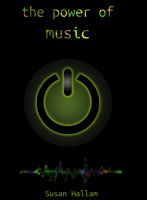
The Power of Music
In August 2010, Professor Susan Hallam of the Institute of Education at the University of London, published an overview paper on the impact of music on intellectual, personal and social development. Drawing on the results of numerous studies, she concludes that playing an instrument can lead to a sense of achievement; an increase in self-esteem; increased confidence; self-discipline; and provide a means of self-expression. While participating in musical groups promotes friendships; social skills; a sense of belonging; team-work; co-operation; commitment; mutual support; increased concentration and provides an outlet for relaxation.
Early Childhood Music Therapy and Autism Spectrum Disorders
Early Childhood Music Therapy and Autism Spectrum Disorders: Developing Potential in Young Children and their Families (book)
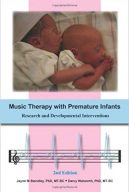
Music Therapy with Premature Infants
Music Therapy with Premature Infants: Research and Developmental Interventions by Jayne M. Standley and Darcy Walworth (book)
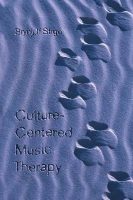
Culture-centered Music Therapy
A basic read, if you plan to work as a music therapist on the Scandinavian Peninsula:
Brynjulf Stige: Culture-centered Music Therapy (2002)
An in-depth exploration of taking culture-inclusive perspectives for practice, theory, and research in music therapy. Part One outlines premises for the argument, examining basic concepts such as culture, humankind, meaning, “musicking,” and the nature-nurture debate.

The Development of Talent
Emőke Bagdy: The Development of Talent (a book in Hungarian)
The book goes deeper into what a talented young person is, than just talking about fame, success and the conventional nurturing of a healthy talented person’s development. It looks at what is really behind the scenes. It gives practical advice to both parents and professionals on interventions and opportunities, that could be used in talent grooming.
3 books on community music therapy
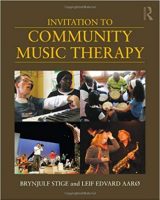
Brynjulf Stige: Invitation to Community Music Therapy (2011)
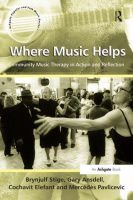
Where Music Helps: Community Music Therapy in Action and Reflection (2010)
This book explores how people may use music in ways that are helpful for them, especially in relation to a sense of wellbeing, belonging and participation. The central premise for the study is that help is not a decontextualized effect that music produces. The book contributes to the current discourse on music, culture and society and it is developed in dialogue with related areas of study, such as music sociology, ethnomusicology, community psychology and health promotion. Where Music Helps describes the emerging movement that has been labelled Community Music Therapy, and it presents ethnographically informed case studies of eight music projects (localized in England, Israel, Norway, and South Africa). The various chapters of the book portray “music’s help” in action within a broad range of contexts; with individuals, groups and communities – all of whom have been challenged by illness or disability, social and cultural disadvantage or injustice. Music and musicking has helped these people find their voice (literally and metaphorically); to be welcomed and to welcome, to be accepted and to accept, to be together in different and better ways, to project alternative messages about themselves or their community and to connect with others beyond their immediate environment. The overriding theme that is explored is how music comes to afford things in concert with its environments, which may suggest a way of accounting for the role of music in music therapy without reducing music to a secondary role in relation to the “therapeutic,” that is, being “just” a symbol of psychological states, a stimulus, or a text reflecting socio-cultural content.
Mercedes Pavlicevic, Gary Ansdell: Community Music Therapy (2004)
Music therapists from around the world working in conventional and unconventional settings have offered their contributions to this exciting new book, presenting spirited discussion and practical examples of the ways music therapy can reflect and encourage social change. From working with traumatized refugees in Berlin, care-workers and HIV/AIDS orphans in South Africa, to adults with neurological disabilities in south-east England and children in paediatric hospitals in Norway, the contributors present their global perspectives on finding new ways forward in music therapy.
Reflecting on traditional approaches in addition to these newer practices, the writers offer fresh perceptions on their identity and role as music therapists, their assumptions and attitudes about how music, people and context interact, the sites and boundaries to their work, and the new possibilities for music therapy in the 21st century. As the first book on the emerging area of Community Music Therapy, this book should be an essential and exciting read for music therapists, specialists and community musicians.

